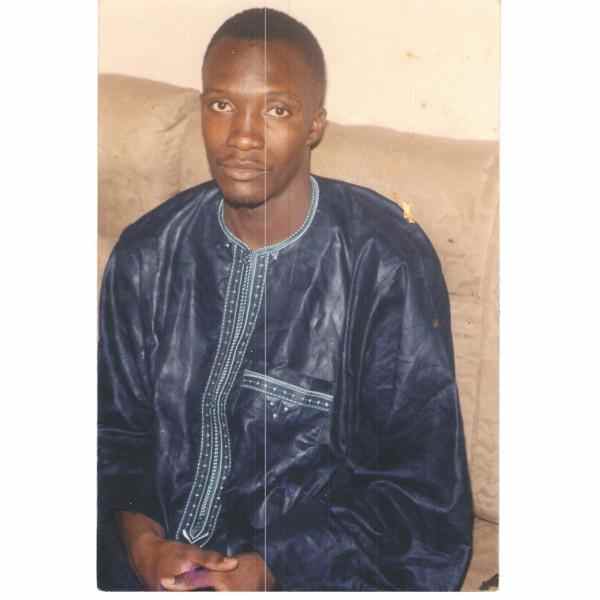Introduction
By organizing open-air booksellers into a professional association, Abdourahmane Mbengue helps legitimize their trade and makes them aware that they are "social actors" who can play a signigicant role in making education more accessible to people throughout Senegal.
The New Idea
Many Senegalese buy textbooks and school supplies from "librairies par terre," open-air bookstores, which sell at low prices. Though most of them are unaware of it, by providing education resources at low cost, these book vendors play an important, though informal, role in education and literacy. By forming a professional association, the booksellers can legitimize their informal segment of the economy, protect their interests as small businessmen, and, most importantly to Abdourahmane, promote education and literacy both in Senegal and across West Africa.
The Problem
Given the low purchasing power of most Senegalese households, many parents, professors, high school, and university students rely on street booksellers for school supplies, textbooks, and research documents. Street booksellers distribute an estimated 70 percent of all school textbooks. Books bought on the street are much less expensive than those sold in stores because the street vendors have their own flexible supply and distribution system, through which they negotiate special prices and save on storage and marketing. Additionally, they sell second-hand books, rent out books for a few days, and accept textbook trades for a small fee. The variety of their low-cost marketing tactics keeps them in business and makes books accessible to people who might otherwise not be able to afford them. Although they provide an important public service, street booksellers sometimes suffer from a bad reputation and lack a clearly defined legal status. Previous state-led attempts to organize street vendors have failed because they were caught up in bureaucracy or politics.
The Strategy
Abdourahmane's objective is to win greater recognition for the important economic, educational, and social role played by Senegal's open-air booksellers. He organizes them and promotes the fact that they perform a vital social service. Abdourahmane set up the Association Nationale des Bouquinistes du Sénégal (ANBS) in 1996. By this time, many booksellers already understood that they could advocate for their profession by setting up a professional association that would bring them together as colleagues. Abdourahmane and the other founding members organized a general assembly in 1996 where Abdourahmane was elected ANBS's president. Today the association has around three hundred members, mostly in the capital, Dakar, and membership in other regions of the country is increasing. Abdourahmane's next task was to convince his colleagues to enlarge their mission to include serving the educational needs of society. Recognizing that looking after their own commercial interests and bettering education are complementary goals, ANBS members seek to provide their customers with better access to educational resources. ANBS explains these social and economic objectives to new members so that, as the association grows, it maintains its commitment to social work.Abdourahmane and other ANBS members have developed new services for booksellers to offer. ANBS members give a special rebate on all textbooks and school supplies, so that parents can more easily afford the costs of education. They donate books to prison libraries and have organized book fairs where students and parents were encouraged to exchange and trade books among themselves. In the future, ANBS will set up book clubs and public libraries in low-income neighborhoods, to which ANBS members will donate the first books. As the association grows, and as its reputation for professionalism and social work also spreads, it plans to negotiate directly with publishers and the Ministry of Education to allow ANBS to distribute the textbooks used in public schools. To win official approval, the association is trying to eradicate practices that give booksellers a bad name. For example, it fights against the sale of books stolen from public offices, libraries or schools by educating members about ethical business conduct. Abdourahmane hopes to show that the ANBS respects the law and expects its members to comply.Another ANBS objective is to make books available to people in rural areas. It has started identifying booksellers outside the capital and is planning to hold rural book fairs. ANBS has also formed relationships with local governments, municipalities, teachers, students, parent associations and community leaders.For Abdourahmane, ANBS's expansion does not stop at Senegal's borders. His goal is to see this strategy used throughout West and Central Africa. He already has professional contacts with booksellers in Mauritania, Burkina Faso, Mali and Cote d'Ivoire, and he will use them to promote similar associations in these countries. Senegal is the ideal place from which to launch this initiative because it supplies books to booksellers in all these countries.
The Person
Abdourahmane began advocating for education at an early age through his involvement in school clubs, workshops, and protests. Booksellers were a familiar sight in his neighborhood and would often lend him books. In 1993, Abdourahmane left university where he was studying philosophy, to study accountancy at a private college. The switch was prompted by the difficulty of finding a job as a teacher and the need for practical, hands-on training that would earn him a living. He spent his vacations selling books on the street to earn money for his tuition and school supplies. As he gained experience as an open-air bookseller, Abdourahmane became aware of the positive social, economic, and educational utility of this profession. He also discovered the threats that booksellers faced-residents wanted them off the streets because they blocked sidewalks and house entrances. Through youth neighborhood associations, Abdourahmane began advocating for the continued presence of street booksellers. He also met other booksellers who shared his view, and after a few informal meetings, they decided to create an association to organize and manage this vital educational and economic activity for the benefit of all.
